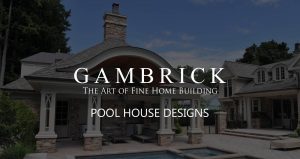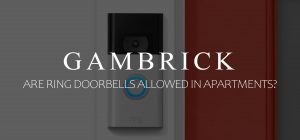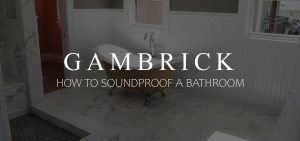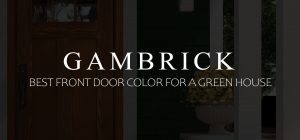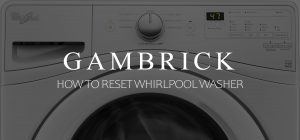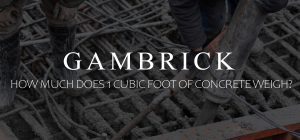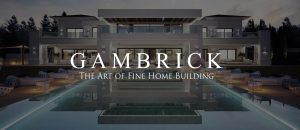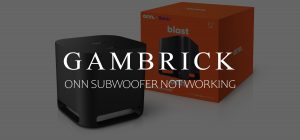What Causes Home Values To Drop
Many people believe home prices only go up over time. This is called appreciation. But that’s not the case. There are plenty of reason why a home’s value can go down. In this article we’ll discuss what causes home values to drop.
There are a lot of contributing factors that make up a homes value. Many of them are under your control like the condition of the home, landscaping, upgrades, amenities, style, size, etc. But there are also lots of factors that you can’t do a thing about. Interest rates, economy, foreclosures, jobs, and even environment factors can all effect your local real estate market. Even world wide issues like the current pandemic we’re in as I write this article can drastically effect a home’s value. It’s simple supply and demand really. If there’s no demand then prices go down, and there’s not much you can do about it.
Below we’ll discuss all the major factors that cause a home’s price to go down along with some info on what you can do about it.
Mortgage Rates
Mortgage rates have a huge impact on home prices. It’s very simple. When interest rates are low buyers can afford to take out bigger loans. This means they can buy a more expensive home or offer a little more than they normally would. Low interest rates means monthly payment are less and you pay less over the life of your loan.
Interest rates are the cost a bank charges to loan you money. For example, if interest rates are 3% and you take out a $200,000 loan you’ll be paying $6,000 per year in interest. That’s the cost to borrow the $200,000. Now let’s say in this same example the rate goes up to 4%. That means you’ll be paying $8,000 per year in interest. You lose $2,000 per year in buying power. Over the course of a 30 year mortgage that’s $60,000. As you can see, the higher interest rates rise the more a loan costs.
As interest rates increase, home affordability decreases for potential buyers because less of their money is being applied to principal. Buyers can’t afford to spend as much on the initial purchase price because higher interest rates means their monthly mortgage payments will be higher.
High Mortgage Rates Lower Home Values For Sellers Too
High mortgage rates not only affect home buyers but also home sellers. Your home isn’t as valuable if rates are high because people may not be able to afford the loan.
For example, let’s say with a low interest rate your home is in the affordable price range of 100 possible buyers. If rates go up then your home may become unaffordable to most if not all of those buyers. A homes value can only be what people are actually willing and able to pay for it. If interest rates rise quickly they can squeeze local buyer to the point where they just can’t afford the asking prices any more. The result is lower home values.
You may have a harder time selling your home at the current list price. You may have to drop your list price in order to appeal to more buyers.
Location
This list of thing that can negatively impact home values isn’t in an particular order. But if it was we’d probably have put location at the number one spot. By far, location is the most important aspect when it comes to real estate prices. A prime location can and will overcome pretty much every other negative factor that’s bringing down home values. When we look at the 2008 housing crisis, as bad as it was, there were still red hot markets appreciating in value each year. Some were not effected at all and had zero foreclosures. Why? It was their location.
On a National level there are towns and cities that have appreciated in value no matter what happens in the world. These always tend to be at the top of the market where buys have the income to overcome high interest rates or natural disasters. The rich can afford to pay no matter what your asking and they will. But what does this mean for the rest of us that aren’t rich and want to use location at a very local level.
Just about every town, no matter how small, generally has a part of town that’s considered prime real estate. It could even be a single street where everyone wants to live. And that could be due to a bunch of different factors that we’ll get into below.
If your buying a home or building a new one then we recommend you do your research. Find these areas and invest in them. Look for up and coming locations and not places in decline. It can be tempting to buy a good deal in an area that’s declining but in the long term it just costs you money. In real estate it’s generally a good idea to sacrifice short term money forlong term gains. In other words, pay a little more to live in a prime location now to make big money down the road as real estate prices appreciate.
Things To Look For
There are a number of things that effect real estate prices dealing with location. These can have both a negative and a positive impact on home values.
- Schools. A house located close to good schools is generally considered favorable.Bad schools have the opposite effect. We don’t recommend buying right next to the school however, just in the general area.
- Shopping. Grocery stores, public transportation, businesses or shopping malls are a good sign of strong home values. When we build we look for high end shopping like a Wegmans or Starbucks in the area. If new shops are popping up and business are being developed it’s a really good sign.
- Highways. Houses that are too close to loud areas such as busy highways, airports or train stations can be a turn-off for people and generally don’t appreciate as well.
- Water. Waterfront homes always tend to hold and appreciate in value more so than homes that are land locked.
- Utilities. Another factor is utilities. If you live in an area where people generally have septic but a particular part of town has sewer, that’s a good place to buy.
- Government. If the government comes in a decides they’re building high rise low income complexes next door, a sewage plant or local dumps, it’s a very bad sign.
- Crime. Stay away from crime ridden areas or places with adult stores. Generally both of these have a negative impact on home values.
- Big Business. When big companies come into an area they bring good jobs and money. Recently in NY, Amazon wanted to develop a huge business hub which would have brought in hundreds of high paying jobs to the area. Real estate prices spiked because of this. NY ultimately rejected Amazon building the hub so prices dropped but it illustrates the impact big business can have on local home values.
There are so many factors that play into declining home values. Unfortunately you can’t do anything about most of them. But you can be smart about where you invest your money if your a new buyer.
Upkeep & Curb Appeal
The overall condition of your home and landscaping are huge factors in terms of curb appeal and are a major cause of depreciation. There’s a huge number of real estate investors all over the country that flip houses for profit just by cutting grass and painting the front door. It’s the simplest thing to make a home look nice from the curb. Here’s a few important tips to consider that will help you avoid depreciation.
- Paint. Don’t let your house look dingy and tired. A fresh coat of paint, especially on the front, can make a huge difference. Make sure you choose a nice color scheme. Check out local comps that have sold and see what people are looking for in the area. Comps will tell you all you need to know about your local market and what buyers like.
- Maintenance. General maintenance is important. Things like cracked concrete walkways or front steps are a big turn off. Pull the woods, cut the grass and plant some flowers. Small things can help keep your home from depreciating.
- Clean. keep the house clean. If it looks dirty you’ll get low ball offers. Power wash any mold or mildew off the house. Just freshen up the entire outside. Don’t go crazy and spend a bunch of money. Simple solutions work best.
- Landscaping. We’ve all seen the house on the block with grass 2 feet high. Cut the grass, trim the bushes and plant a few flowers. Maybe spread some mulch. For a hundred bucks you can save yourself thousands in depreciation at resale.
- Repairs. Any repairs will be reflected in the sale price because most buyers will ask for allowances to fix whatever issues exist. So fix them in advance. Any allowances you have to give at a sale is depreciation. And of course buyers are going to ask for way more than they actually need to fix the problem.
Amenities
In any given area there are things that are considered standard. Some areas homes may be 2000 sq. ft. with 4 bedrooms and 2 1/2 baths on a 75′ x 100′ lot. In others the standard may be 10,000 sq. ft. with 7 bedrooms, 6 baths on an acre. And in others you may find nothing but tiny homes under 1000 sq. ft. The point is that you need to make sure your home has the amenities that are considered standard for your area and line up with the local comps.
Every location will have an average comp for the area. That not only will give you a price range but also a description of the average home and a list of what’s included. You need to stay within that range if you want to get the most money you can at resale. Or stay above. If your home is below that level then you risk losing some home value.
So how would this happen in the first place? What we see most often is a bad remodeling plan. Homeowners make the mistake of remodeling their home with only their own usage in mind without considering depreciation. The most common example we’ve found is removing a bedroom to achieve an open floor plan.
Everyone these days seams to want an open floor plan but that’s not the way older homes were designed. To achieve the look many homes need to remove a bedroom. Let’s say you have a 3 bedroom ranch and you open things up completely. The remodeled home may be beautiful in the end, but by making it a 2 bedroom instead of a 3 your probably depreciating it’s value. While remodeling is a great idea, don’t sacrifice amenities to do it.
Nature
In your area you may not worry much about how Mother Nature can effect your home’s value. But that’s not the case in some area of the country. Here in New Jersey after Super Storm Sandy, home prices by the water plummeted. That storm was so bad real estate values all along the coast dropped in some cases by 70%. It took over a decade to rebuild most of the homes and infrastructure and in some areas it’s still not completely done.
Natural disasters can happen and when they do it’s devastating to local home values. A few examples of natural disasters that can lower your property’s value are hurricanes, tornadoes, wildfires, earthquakes, mudslides, and floods.
In some cases it doesn’t take a natural disaster to scare away buyers. Sea levels are rising and in some ares right by the waters edge it’s a real concern. Many buyers are scared to invest in a home that may be under water in 20 years. And with that threat comes the added cost of high insurance rates. Those rates squeeze the budget of potential buyers even more which is reflected in the amount they can afford to pay on a loan.
Weather patterns can and do change over time. When you bought your home here in New Jersey, it may not have required flood insurance. But after Hurricane Sandy caused flooding just about everywhere the State redid the flood maps. The new flood zone maps required homeowners to have flood insurance that never needed it before. Many were even forced to elevate their home above the flood plane to even qualify for insurance. These requirements impacted the value of homes in the area as people were reluctant about buying property in a flood zone.
Not only will you have to worry about repairing the damage caused by storms but also about being able to sell your property afterwards. People are generally apprehensive about buying property in an area that was just devastated by a natural disaster.
Foreclosures
Another big factor that can lower the value of your property are local foreclosures and short sales. These effect home values in a few key ways which we’ll discuss below:
- Comps. Foreclosures and short sales in your area have the effect of skewing the comparable sales numbers downward. Local comps are what most buyers base their offers on. If you’ve got a bunch of foreclosure and short sales in the area it’ll eventually start to weight down the housing market.
- Upkeep. Generally speaking short sales and foreclosures aren’t cared for like a traditional home is. Repairs can be left undone for years and so is the overall upkeep and yard work. Sure, the banks will do major things like cutting the grass but that’s not the same as landscaping.
- Improvements. If your in an area where most people improve and upkeep their properties over time then you definitely don’t want to see foreclosures. They’ll sit untouched until a new buyer moves in and starts making improvements. If the home is in need of improvements then they’ll have to wait because banks won’t make them.
- Crime. Squatting isn’t uncommon here in New Jersey and it happens most often in abandoned homes like a foreclosure. Kids break in to hang out, vandalism, drugs and graffiti are all more common if you have a bunch of abandoned homes in the area. Overall it’s just an unsafe environment.
As much as foreclosures can have an impact on lowering local home values. It’s the underlying cause that’s the real problem. This is what we’ll discuss next.
The Underlying Causes Of Foreclosure Are Why Home Values Drop
While foreclosures cause all sorts of local issues that can lower home values like crime, squatting, disrepair or just a feeling of bringing down the look and feel of a neighborhood. The real damage is caused by the underlying problems and reasons for those foreclosures. Those reasons can have a devastating effect on home prices if they’re not dealt with. And generally these problems are so large they’re completely out of anyone’s control.
- Jobs. If your area is suffering from major job losses then it’s going to have a huge effect on home values. We’ve seen it so many times throughout the country. Plants close laying off hundreds of workers and home values plummet. Right now there’s a huge boom in real estate values around Rt. 1 here in New Jersey because that’s where all the pharmaceutical companies are. If those high paying jobs every go away you can be sure home prices will plummet.
- Economy. The overall economy plays a big factor when it comes to jobs too. Especially in terms of small business hiring which makes up the majority of employers. When the economy is booming hiring goes way up and so do salaries. But when recessions come you can expect layoffs.
- Interest Rates. We touched on this above but it’s worth mentioning again how impactful interest rates are on home values. If they rise too high and homeowners can’t afford to refinance their way out of an adjustable rate or interest only mortgage then foreclosures happen. This is why we tell most of our clients to get a standard 20 – 30 year fixed rate mortgage. They help keep you out of trouble.
Foreclosures And Short Sales Weigh Down The Real Estate Market
As foreclosures and short sales in the area start popping up at a higher rate then normal they start to weight down the local real estate market and home values.
For example, let’s say you have a 3 bedroom, 2 1/2 bath, 2000 square foot home with a 2 car garage. A standard size and style for the area with a normal lot. Comparable homes have sold recently for around $350,000 with the same general age, amenities and condition. A third home was foreclosed on and sold at auction for $300,000. This foreclosure sale impacts the comparable prices in the area and takes a way a potential buyer for normally priced homes.
Every area has some foreclosures and the market can absorb them. But as they increase and get to abnormally high levels those sales will eventually decrease the price of your home. Reason being your now competing with lots of homes being sold at steep discounts.
Even if the foreclosed homes are not direct comps, as in same size with the same amenities, if they’re in your immediate area then they effect your home’s value. Every sale in the area and all the surrounding home values effect your appraisal. Not just the houses that are a lot like yours.
Another big factor is buyer confidence. Potential buyers can become hesitant to buy in an area that has a lot of foreclosures. it’s a bad sign that home’s in the neighborhood won’t appreciate in value over time.
Put yourself in their shoes. How would you feel about buying a home next to a house that had just been foreclosed on? What about f there were 2 or 3 foreclosures on the block? You may feel a bit uncertain about the location. If you were still interested in buying you would likely try to negotiate the price down. It happens all the time and was a huge problem all over the Country in 2008.
Power Lines
Being hooked up to the power grid is a standard for the vast majority of homes around the Country. Sure, off grid homes are on the rise but it’s still only a very small percentage. For most buyers, having electricity from the power company is a must. And that electricity has to be supplied to your home via power lines. Most people are used to seeing power lines strung along telephone poles at the street. From there they can run underground to your home or through the air from the pole to the house.
These are all the normal residential stuff your seeing though. Have you ever seen the actual high power lines are sub stations that feed those lines power? That’s the power lines we’re talking about. And they’re really bad for home values.
We recommend buying as far away from the high power lines and sub stations as you can. Not only are they bad for your health but they’re really ugly and often times dangerous. No one wants to live anywhere near them which is why land and home are generally cheaper the closer you get.
Here in New Jersey they run new high power lines through rural areas all the time. But they get close to suburban life and existing developments which isn’t good for home values. New substations are occasionally needed to feed new developments and where they’re built is a big deal.
If either a sub station or power lines are going to built anywhere near your home then you can be sure it won’t have a good result on the surrounding home prices.
Gun Ranges
We touched a little bit about adult oriented activities being generally bad for real estate values. And this definitely includes a gun range. We don’t recommend buying a home near one of allowing one to be built near your home. If you have a say that is.
Here in New Jersey a gun range isn’t an easy thing to build. Local zoning laws exist to prevent them from being built too close to developments and if they apply for a permit you can fight it. And you should. We’re not against gun ranges being built in the State, but I think they should be away from children and peoples homes.
Not only are they noisy when there’s outdoor shooting going on but they’re also dangerous. I don’t want people with loaded guns shooting anything anywhere near my house or my kids. And I think most people would agree with me.
Bars And Clubs
These are two more businesses that are adult oriented and bad for local real estate values. And in this case we mean very local.
A hot club or a bar may not lower values for an entire town, they may actually increase them if it draws in high end clientele and money to the area, but the homes immediately around the location will probably suffer a bit. I’ve never heard of anyone wanting to live right next to a noisy club or a bar. Not to mention all the trouble they could possibly bring. A good size buffer is generally a great idea.
This is why we generally recommend buying away from the main business hub of a town. Not too far away but enough that your not at risk of a business being opened across the street. While I do think it’s a good idea to stay close to shopping, don’t be too close.
So what can you do about it? If a bar or a club tries to open too close to residential homes then you may be able to fight the permits. At least here in New Jersey you can. Residents have rights and zoning codes to help prevent this sort of thing, although it still does happen from time to time. The best method for a lot of these causes of home depreciation is prevention. Buying smart when your dealing with real estate is crucial. Make sure you choose the right location where it’s impossible to build or develop potentially problematic businesses anywhere near your home.
Train Tracks
This is really a no brainer but living near train tracks isn’t great for long term home values.
However, living close to a train station is actually a plus. A lot of people commute to work and being within walking distance to a train station is a big plus in some areas. You just don’t want to live right next to the tracks or the station. A few blocks is generally enough distance. As a rule of thumb we recommend being far enough that you can’t see or hear the train. And it varies from place to place based on things like other houses, trees and the design of the tracks.
We recommend checking out an area before you buy. Drive through at various times, day and night. Check out the home at night when the train comes in and see if it’s bothersome. If it is then your too close.
Here in New Jersey the train tracks are built already so there’s really no risk in buying where they may some day run new track. But if your living in a more rural area don’t buy anywhere that could be a possibility. They generally won’t run train tracks through a developed area. They’re run in long stretches op open space near the outskirts of towns.
This is another reason we recommend buying close to the business hub of town. Just not too close.
Highways
Major highways are a similar situation to train tracks although they’re more common. Governments build a lot more highways than they do train tracks these day so it’s always a risk. Eminent domain means they can run new roads and highways wherever they want. here in New Jersey they can actually take your land if they want to. It’s hard to know exactly where they’ll build in the future, but like train tracks, they generally don’t go through developed areas.
Try to think ahead and buy in locations where it’s least likely a new road or highway will be built.
If they do end up putting a major road right next to your home then your home value will most likely drop. Generally the State is required to build a wall or a line of tall trees to block the highway from view and buffer noise but they don’t work that great. The wall does but it’s super ugly. No one I’ve ever met wanted a 30′ wall blocking a high speed highway in their backyard. We recommend staying far enough away from major highways that this wouldn’t be an issue.
Unusual Remodeling
As a home builder I can’t tell you firsthand how badly some homeowners kill their home values with bad remodeling choices.
While it may be your dream to someday live in a Venetian inspired home with stucco walls and clay tiled roof. If you build that home is a seaside town surrounded by shingle style homes, you’ll crush your home value. If you want your home to appreciate in value then don’t make any unusual or out of place remodeling choices.
Ask any realtor, home builder, or home designer and they tell you that remodeling for the masses is what maximizes home values. If your doing it purely for your own pleasure and you have no intention of selling the home then that’s different. Do what makes you happy in your own home. But if your remodeling with home appreciation in mind then make choices that are good for resale.
The best way to avoid this sort of depreciation is by looking at comps. Find the top 10 most expensive homes that have recently sold in your surrounding area and see what they have in common. If your remodeling plan doesn’t fit in at all then it’s probably a bad idea. There’s no need to take chances or be overly creative. Just stick with what works.
If you do plan on making some daring remodeling decisions then make them in smart places that are easy to change later. Think paint colors, drapes or interior decorating styles. Play is safer when it comes to major things that take big money to change.
Remember that this is one of the causes for home values to drop that is easily avoidable. Since so many of the reasons why home values go down are completely out of our control we really need to get what is in our control right.
Fracking And Other Industrial Operations
Fracking has become more and more popular over the last decade or so and hasn’t done anything good for the surrounding home values.
This isn’t really a concern if you live along the coast, but inland it’s a major concern. No one wants to live anywhere near a fracking operation. While it hasn’t been proven that fracking is bad for your health, many people believe that it is. And there’s lots of anecdotal evidence to back up their claims. I personally wouldn’t want to drink water that’s downstream from a fracking operation and I know a lot of people would agree with me.
Although there’s no proof fracking is bad for you or that it’s polluting ground water, people believe that it is. And that means their reluctant to buy homes anywhere near a fracking operation. We recommend you stay away from fracking and anywhere that even close to a potential fracking site.
This same advice applies to mining and oil drilling. Or any other large scale operation like tanning, milling or farming. Anything industrial is generally a terrible thing for home values.
Pools
Pools are a hit or miss subject. In some areas, and some homes, a pool is a must have amenity. While in others it’s a huge drawback.
We have a unique perspective on pool in New Jersey because part of our business is as a pool removal company. And year round our phone is ringing and business is booming. Of course at the same time so is the pool business in general. That’s what makes it such a strange topic. It’s a very local decision. Look at the comps and find out if a pool is appropriate for your area. If not it may actually lower the value of your home.
There are a lot of reasons why people hire us to remove pools. Here’s a list of the most common.
- Expense. Pools are expensive to maintain and some homeowners just don’t want to pay that cost every year.
- Time. On top of the expense is the time it takes. Pools are a pain to maintain and if you don’t want to do it yourself you have to hire someone to do it for you.
- Liability. Here in New Jersey every property with a pool has to be fenced in for safety reasons and your insurance goes up.
- Safety. A lot of our customers are worried about their small kids falling into the pool. You may not realize it but accidents surrounding pools are very common all around the country.
A pool may help your home value, but then again it may cause it to drop. Find out what it’ll do to your home’s resale value before you spend a lot of money installing one because they’re not cheap to build or maintain.
Summary: What Causes Home Values To Drop
Many people believe home prices only go up over time. This is called appreciation. But that’s not the case. There are plenty of reason why a home’s value can go down. In this article we’ll discuss what causes home values to drop.
There are a lot of contributing factors that make up a homes value. Many of them are under your control like the condition of the home, landscaping, upgrades, amenities, style, size, etc. But there are also lots of factors that you can’t do a thing about. Interest rates, economy, foreclosures, jobs, and even environment factors can all effect your local real estate market. Even world wide issues like the current pandemic we’re in as I write this article can drastically effect a home’s value. It’s simple supply and demand really. If there’s no demand then prices go down, and there’s not much you can do about it.
I hope some of the information we’ve included helps you understand what causes home values to drop and how to avoid them.
If you have any questions or comments e-mail us any time. We’d love to hear from you.



